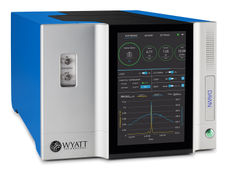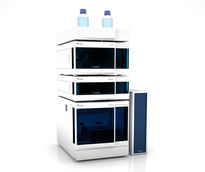New experiment could reveal make-up of the universe
The detectors will become part of the Advanced Gamma Tracking Array (AGATA) experiment, currently based in Italy, which aims to create a 'fingerprint' of the inside of the atomic nucleus to understand the structure of all matter in the Universe, including human beings and the stars.
The experiment will help scientists analyse particle interactions that produce gamma rays, which are also commonly used for their penetrating properties in medical diagnostics and treatments such as PET scans and radiation therapy. Scientists will use these interactions - and the energy required to make them - to probe rare 'exotic' nuclei. These are formed by nuclear reactions, which occur in the heart of stars as well as the large accelerator facilities used to study them on earth.
Exotic nuclei are difficult to detect and consist of extreme proton and neutron ratios, making them highly unstable. The new experiment will help scientists understand why some nuclei are more stable than others and why they have a wide variety of different shapes.
The University's Department of Physics is home to the only gamma ray detector scanning system in Europe. The machine will scan the new detectors to help 'read' the signals produced by AGATA so that scientists can understand the properties required to create and sustain life in the Universe.
Dr Andy Boston, from the University's Department of Physics, explains: "There is a huge abundance of elements in the Universe, but we know very little about why this is. We can only begin to understand how these are formed by looking at a broad spectrum of nuclei, beyond those available on earth. We look at the stars to do this because they contain exotic nuclei. These nuclei have extreme proton and neutron ratios which make them unstable and decay very quickly, until the stable nuclei we have on earth are left behind.
"If we can understand the structure of these exotic nuclei then we can begin to understand the abundance of elements in the Universe today. State-of-the-art computers will help us do this by reconstructing the path of gamma rays around the new detector and recording the energy created.
Organizations
Other news from the department science
These products might interest you

DAWN® by Wyatt Technology
The instrument for Multi-Angle Light Scattering (MALS): The DAWN® from Wyatt Technology
The world's most advanced light scattering instrument for absolute characterization of macromolecules

AZURA Analytical HPLC by KNAUER
Maximize your analytical efficiency with customized HPLC system solutions
Let your application define your analytical system solution

Get the chemical industry in your inbox
By submitting this form you agree that LUMITOS AG will send you the newsletter(s) selected above by email. Your data will not be passed on to third parties. Your data will be stored and processed in accordance with our data protection regulations. LUMITOS may contact you by email for the purpose of advertising or market and opinion surveys. You can revoke your consent at any time without giving reasons to LUMITOS AG, Ernst-Augustin-Str. 2, 12489 Berlin, Germany or by e-mail at revoke@lumitos.com with effect for the future. In addition, each email contains a link to unsubscribe from the corresponding newsletter.
Most read news
More news from our other portals
Last viewed contents
The toolbox of the cells - Research insight to nobel laureates Lindahl, Modrich and Sancar
MORPHOSYS AND PROCHON ANNOUNCE MILESTONE




























































